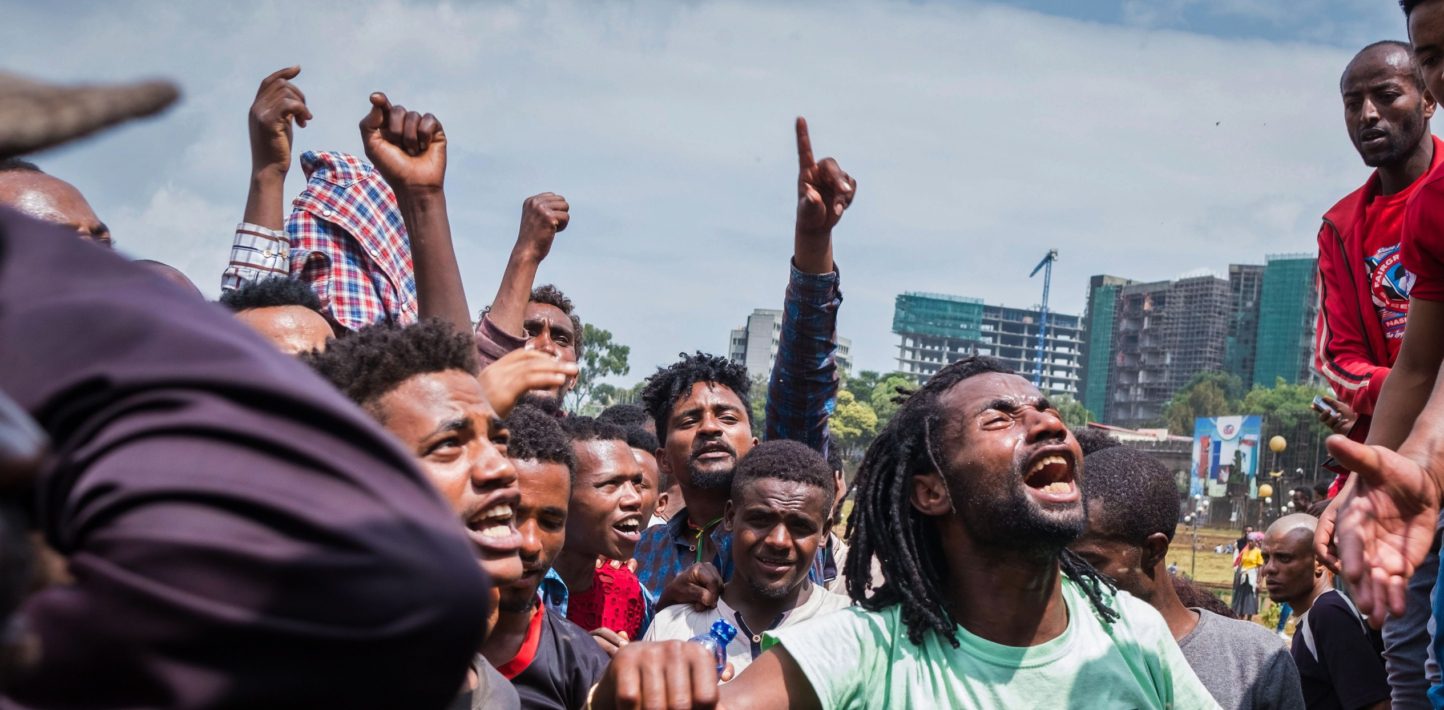Prime Minister Abiy Ahmed has been in office since April 2 last year when massive political and economic changes took root in Ethiopia. Within months of his entrance into office, “Abiy-mania” was in full effect. A charismatic Ethiopian Oromo Evangelical with a Muslim name and conversational Tigrinya, Oromifaa and Amharic, three of the country’s most popular languages, the Prime Minister appealed to many marginalized and underrepresented groups in the country. Oromo and Muslim Ethiopians were excited to be represented at the country’s highest seat of power, and it seemed as if his Evangelical background influenced his initial approaches to national reconciliation – love and forgiveness as a way for Ethiopia to move forward and overcome its crisis of the past three years. The Prime Minister’s transition into leadership seemed even smoother.
Months after his entrance on to Ethiopia’s political scene, it became evident that he was serious about fundamentally changing Ethiopia’s political and economic direction.
Haben Fecadu, Amnesty International Campaigner
Months after his entrance on to Ethiopia’s political scene, it became evident that he was serious about fundamentally changing Ethiopia’s political and economic direction. He welcomed back exiled opposition groups Ginbot 7, the Ogaden National Liberation Front (ONLF), and the Oromo Liberation Front (OLF) that had been attempting, through violent means, to overthrow Ethiopia’s governing coalition, the Ethiopian People’s Revolutionary Democratic Front (EPRDF). They were based in arch enemy Eritrea, a country with whom the Prime Minister was able to end a twenty-year conflict, seemingly overnight. It seemed too good to be true. Within months of his appointment, there was an opening of political space, many prisoners of conscience were released, cabinet was reshuffled and representation of women in government increased.
Importantly, over 60 high level government officials got arrested on charges of torture and corruption by the end of 2018, and Ethiopia’s Legal Advisory Council announced the redrafting of some of the more draconian pieces of legislation as a part of judicial reforms. Human rights defenders were particularly encouraged by the rewriting of the problematic Charities and Societies Proclamation, a law that had been used to restrict the work of civil society organizations and to nearly eradicate forms of traditional groups in Ethiopia, and the Anti-Terrorism Proclamation that abused the definition of terrorism as a justification to shut down opposition to government.
But these changes, while important and necessary, have not been enough to quell some of the more serious human rights challenges facing Ethiopia today. The adjustment from decades of censorship to guarantee that everyone feels safe to speak freely has been a difficult one. Advocacy of hatred and discrimination around ethnic lines has been rife and has caused violent clashes in Addis Ababa and the Oromia, Amhara and southern regions over the past year.
One violent incident due to ethnic tension between members of the Oromo and Gedeo ethnic groups led to the one of the worst displacement crisis globally, with the numbers of people displaced coming to over 1.3 million, with people lacking access to food and basic services and calls for government aid falling on deaf ears. For more than a year, the Prime Minister didn’t prioritize the situation and only visited the region in April 2019, a visit believed to be prompted by an article publicizing the crisis even further. Until then, it was the voluntary efforts of Ethiopians attempting to raise the money and do the work that the Ethiopian government should have been doing in the first place. Similar situations are feared for the Qimant in Amhara, Amhara and Tigray in Bensihangul Gumuz, and Oromos and Somalis around Moyale. So far, there have been little efforts by the federal government to work with its sub-regional representatives to ensure that Ethiopians in all regions, have a safe place to call home.

Many Ethiopians are wondering when internal Ethiopian issues will be adequately addressed. Instead, the Prime Minister has been busy forging regional relationships and garnering an international reputation as the Ethiopian changemaker. Since coming into office, the Prime Minister has formed economic and political partnerships with the Eritrean and Somali leadership, in ways that have left even Eritreans and Somalis questioning whether Abiy’s leadership in Ethiopia would bode well for human rights in their home countries.
From the Prime Minister’s recent priorities and the new Reconciliation Law, it is evident that Ethiopia’s leadership is underestimating its people’s need for justice and accountability. Abiy Ahmed’s administration should be prioritizing victims’ rights and foster accountability to ensure that conflicts don’t continue to flare up. Some government officials suspected of serious human rights violations are facing trial, but others continue to prosper in their careers without so much as an acknowledgment of the government’s past wrongs. Efforts to guarantee victims’ rights to truth, justice and reparation need to be central in addressing ethnic conflicts in Ethiopia. This will be the only way to ensure that Ethiopia’s transition continues in the path of human rights even past the elections scheduled for May 2020.


